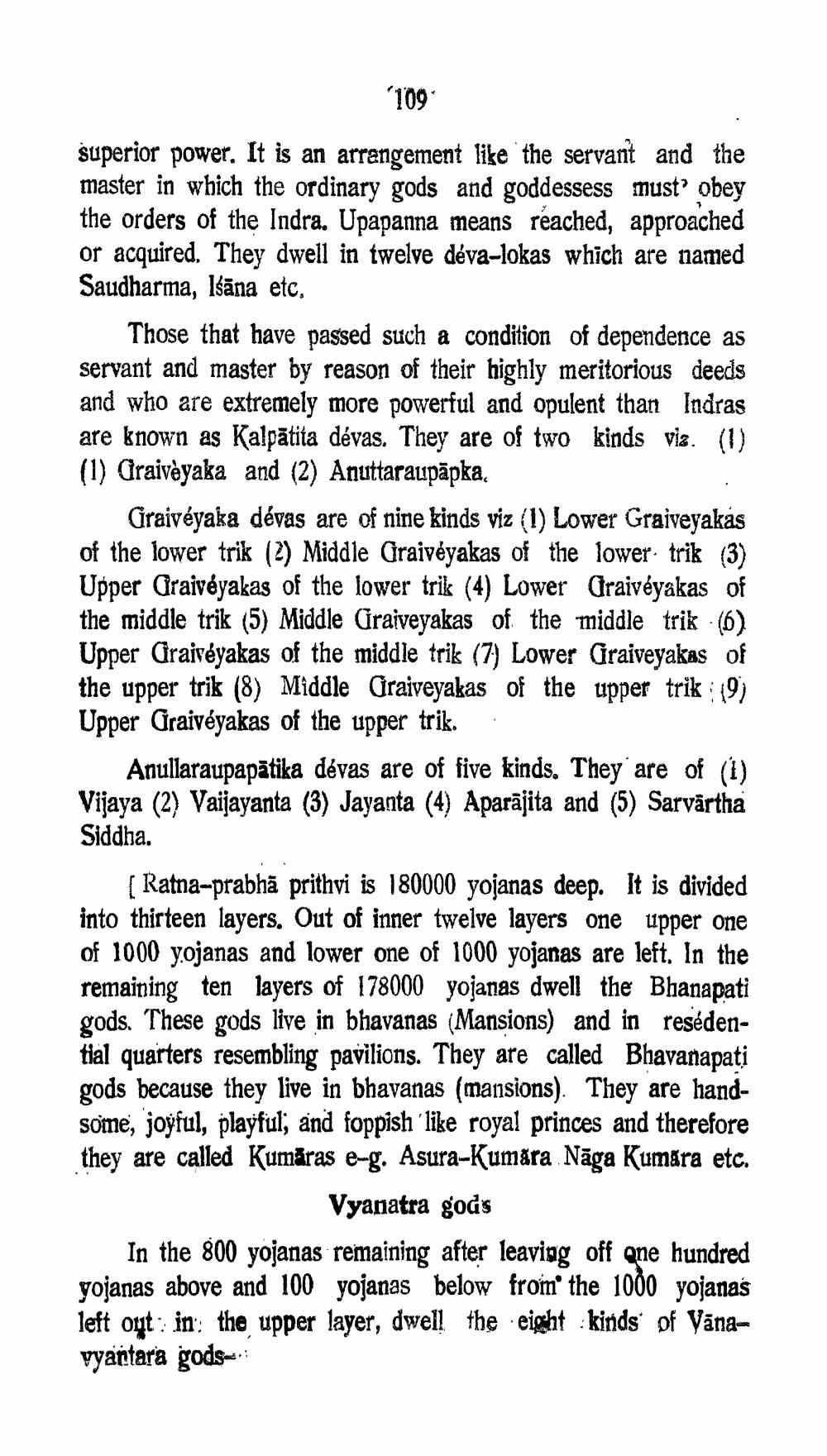________________
'109
superior power. It is an arrangement like the servant and the master in which the ordinary gods and goddessess must obey the orders of the Indra. Upapanna means reached, approached or acquired. They dwell in twelve déva-lokas which are named Saudharma, lśāna etc.
Those that have passed such a condition of dependence as servant and master by reason of their highly meritorious deeds and who are extremely more powerful and opulent than Indras are known as Kalpātita dévas. They are of two kinds viz. (1) (1) Graivèyaka and (2) Anuttaraupāpka.
Graivéyaka dévas are of nine kinds viz (1) Lower Graiveyakás of the lower trik (2) Middle Graivéyakas of the lower trik (3) Upper Graivéyakas of the lower trik (4) Lower Craivéyakas of the middle trik (5) Middle Graiveyakas of the middle trik (6) Upper Craivéyakas of the middle trik (74) Lower Graiveyakas of the upper trik (8) Middle Graiveyakas of the upper trik: 19; Upper Graivéyakas of the upper trik. .
Anullaraupapātika dévas are of five kinds. They are of (1) Vijaya (2) Vaijayanta (3) Jayanta (4) Aparājita and (5) Sarvärtha Siddha.
[ Ratna-prabhā prithvi is 180000 yojanas deep. It is divided into thirteen layers. Out of inner twelve layers one upper one of 1000 yojanas and lower one of 1000 yojanas are left. In the remaining ten layers of 178000 yojanas dwell the Bhanapati gods. These gods live in bhavanas (Mansions) and in resedential quarters resembling pavilions. They are called Bhavanapati gods because they live in bhavanas (mansions). They are handsome, joyful, playful, and foppish like royal princes and therefore they are called Kumāras e-g. Asura-Kumara Nāga Kumara etc.
Vyanatra gods In the 800 yojanas remaining after leaving off one hundred yojanas above and 100 yojanas below from the 1000 yojanas left out: in: the upper layer, dwel! the eight kinds of Vanavyantara gods.




